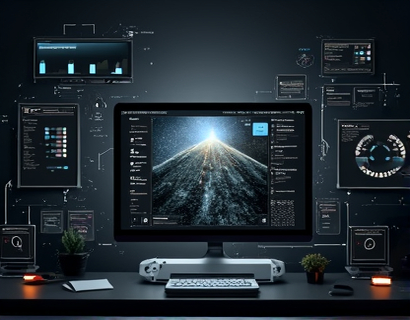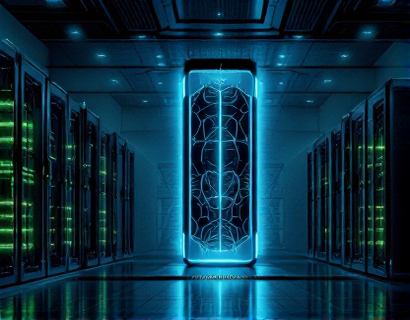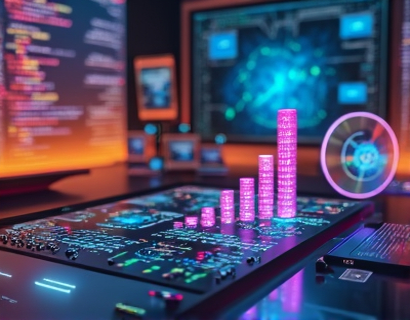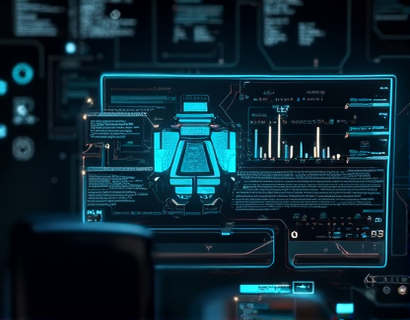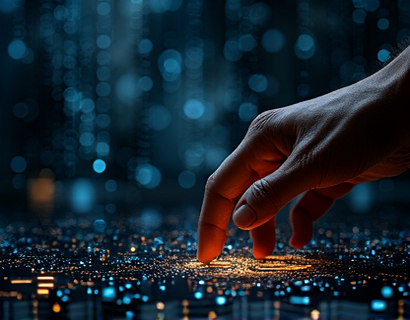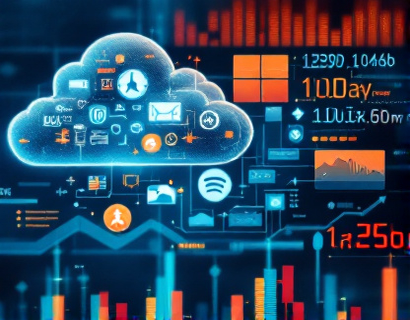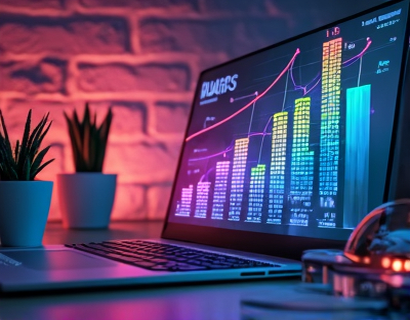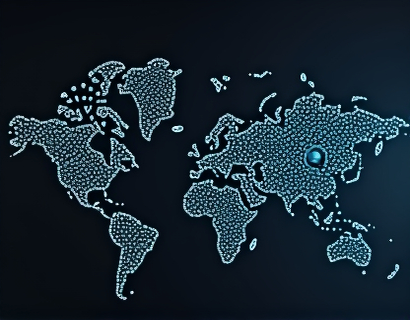Decentralized AI and Crypto: Revolutionizing Ucosystem Applications for Enhanced Digital Experiences
The intersection of decentralized technologies, artificial intelligence, and cryptocurrency is giving rise to a new era of digital applications. This convergence is not just a technological advancement but a paradigm shift in how we interact with digital services. The fusion of these elements is creating what is known as the Ucosystem, a term used to describe the ecosystem built on decentralized applications (dApps) powered by AI and cryptocurrency. This article delves into the transformative impact of this merging, exploring how it enhances user engagement and redefines digital interactions.
The traditional centralized model of digital services has been dominated by a few large corporations, often leading to issues such as data privacy concerns, single points of failure, and limited user control. Decentralized applications, on the other hand, distribute control across a network of nodes, ensuring transparency, security, and user sovereignty. When AI is integrated into these decentralized systems, the potential for innovation and user empowerment becomes immense.
Understanding Decentralized Applications
Decentralized applications, or dApps, operate on blockchain networks, which are decentralized ledgers maintained by a network of computers rather than a single entity. This decentralization ensures that no single point of failure can disrupt the entire system, making dApps more resilient and secure compared to their centralized counterparts. The smart contract feature of blockchain technology automates and enforces the rules and logic of the application, reducing the need for intermediaries and increasing efficiency.
One of the key characteristics of dApps is their accessibility through web interfaces or mobile applications, without the need for users to download or install software. This makes them more user-friendly and widely accessible. The use of cryptocurrencies in dApps facilitates seamless transactions, eliminating the need for traditional payment gateways and reducing transaction costs.
AI in Decentralized Systems
Artificial intelligence, with its ability to analyze vast amounts of data, learn from patterns, and make decisions, is a natural fit for decentralized systems. AI can enhance the functionality of dApps by providing intelligent services such as personalized recommendations, predictive analytics, and automated decision-making. In a decentralized context, AI can operate independently and collaboratively across the network, ensuring that the benefits of AI are distributed and not controlled by a single entity.
For instance, AI-driven chatbots can provide 24/7 customer support within a dApp, offering users instant assistance and improving user experience. Machine learning algorithms can analyze user behavior and preferences to tailor content and services, making the digital experience more relevant and engaging. Additionally, AI can enhance the security of dApps by detecting and mitigating threats in real-time, ensuring a safer environment for users.
Enhancing User Engagement
The combination of decentralization and AI in dApps significantly enhances user engagement. Traditional centralized applications often struggle to maintain user interest over time, as users may feel disconnected from the service and lack control over their data. In contrast, dApps powered by AI offer a more interactive and personalized experience.
Personalization is a key factor in user engagement. AI algorithms can analyze user data to create customized experiences, from tailored content recommendations to personalized financial advice. This level of personalization not only increases user satisfaction but also fosters a stronger connection between the user and the application. Users are more likely to remain engaged and active within the ecosystem when they feel that the service understands and caters to their unique needs.
Moreover, the transparency and immutability of blockchain technology build trust with users. Knowing that their data is securely stored and that the application operates without hidden agendas encourages users to participate more actively. This trust is further reinforced by the decentralized governance models often employed in dApps, where users can have a say in the development and direction of the application through token-based voting systems.
Redefining Digital Interactions
The integration of AI and cryptocurrency in decentralized applications is not just about enhancing user engagement; it is also about redefining the very nature of digital interactions. In a decentralized ecosystem, users are not mere consumers but active participants. They can contribute to the network by validating transactions, providing data, or developing new features, thereby gaining rewards in the form of cryptocurrency.
This shift from passive consumption to active participation creates a more dynamic and community-driven digital environment. Users have a vested interest in the success of the application, as their contributions directly impact the value of the ecosystem. This alignment of interests fosters a sense of community and collaboration, which is often lacking in centralized systems.
Furthermore, the use of AI in decentralized applications enables more sophisticated and intuitive interactions. Natural language processing (NLP) powered by AI allows for seamless human-machine communication, making it easier for users to interact with dApps using natural language. Voice assistants and conversational interfaces become more prevalent, reducing the learning curve and making technology more accessible to a broader audience.
Challenges and Considerations
While the potential of decentralized AI applications is vast, there are several challenges that need to be addressed. Scalability remains a significant issue, as blockchain networks can struggle to handle a high volume of transactions efficiently. However, ongoing developments in blockchain technology, such as layer 2 solutions and more efficient consensus mechanisms, are addressing these concerns.
Another challenge is the regulatory landscape. The intersection of cryptocurrency and AI introduces new legal and compliance issues that vary by jurisdiction. Developers and users must stay informed about the evolving regulations to ensure compliance and avoid potential legal pitfalls.
Privacy is also a critical consideration. While blockchain's transparency is a strength, it can also expose sensitive user data. Implementing advanced encryption techniques and zero-knowledge proofs can help maintain user privacy while still benefiting from the transparency of the blockchain.
Future Prospects
The future of decentralized AI applications is promising, with numerous potential developments on the horizon. As blockchain technology matures and AI algorithms become more advanced, we can expect to see even more innovative and sophisticated dApps. The integration of other emerging technologies, such as the Internet of Things (IoT) and quantum computing, will further expand the capabilities of these applications.
One exciting area is the development of decentralized AI marketplaces, where developers can create, share, and monetize AI models and algorithms. This would democratize access to AI technology, allowing smaller developers and startups to compete with larger entities. Additionally, the rise of decentralized finance (DeFi) and non-fungible tokens (NFTs) within dApps is opening new avenues for financial inclusion and digital ownership.
In conclusion, the merging of decentralized AI and cryptocurrency is revolutionizing the digital landscape. By creating more secure, transparent, and user-centric applications, this convergence is enhancing digital experiences and redefining interactions. As the technology continues to evolve, the potential for innovation and user empowerment is immense, paving the way for a more decentralized and equitable digital future.






